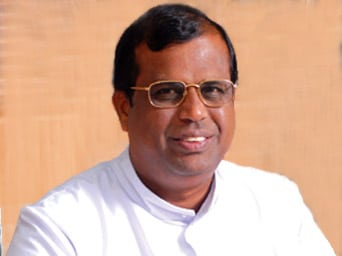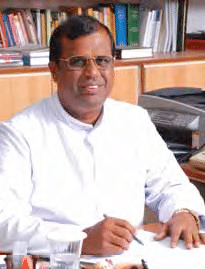
 The government needs to come forward and make teaching a more lucrative profession, says Rev Fr Dr V K Swamy, Principal, St Joseph’s PG College, Hyderabad, in conversation with Rozelle Laha
The government needs to come forward and make teaching a more lucrative profession, says Rev Fr Dr V K Swamy, Principal, St Joseph’s PG College, Hyderabad, in conversation with Rozelle Laha
Please comment on the present situation of higher education in India.
The present situation of education in our country is comparatively better that it was 10 years ago. The UGC and the AICTE have taken charge and it is on the positive side now. There is quantitative expansion. But unfortunately, these two agencies have not concentrated much, though they have given guidelines about the quality of educational institutions. Therefore, you will find a lot of institutions without proper infrastructure and trained staff.
Have you deployed digital learning solutions in your classrooms?
We have installed LCDs in all our classrooms. But, it is not enough to have equipment, so we are also sending our staff for training. A lot of the staff members have difficulty in devoting time to browse and download the relevant material for e-Learning. We have tried to improve every year and we are involving the students to collaborate in the teaching- learning process. Students are now more focused and so it becomes a good learning practice.
How can we encourage more teachers to take up teaching?
It is one of the major concerns. Even if we get qualified staff, they are qualified only on paper, they need to be trained. Because of the government’s policy that gave a lot of thrust to engineering education, more people were opting for it. And now, getting a qualified teacher is difficult.
Also, recruitment of teachers, at least in Andhra Pradesh, is not up to the mark. The teachers are also not paid very good salary; this stops a lot of them from taking up the profession. This profession is not enlightened by the government or the private sector. People think medicine and engineering will get them more salary. In Western countries, teaching is regarded as a profession of repute. So, the gap can only be bridged if the government comes forward and makes this profession more lucrative.
How have students collaborated in the process of teaching-learning?
As I told you, teachers must have graduated about 10-15 years ago. And they have never touched computers. We have a lot of teaching programmes for them but not all of them are very keen to learn. We are also interested in using ICT based material in the classroom. Since they themselves are not equipped, we have suggested them to take help from bright students in downloading the right material. This will make the student also interested. Otherwise making the students actively participate in the learning process is very difficult.
What are the major challenges in implementing ICT in schools?
The government controls the fee structure in higher education these days. Arts and science colleges do not charge much, whereas, in kindergarten, people are ready to pay up to `50,000 for a teacher who is not even qualified.
In rural areas, schools have only one or two teachers. Even if the teachers are trained, the shortage of electricity creates problems.
If the government provides power 24X7, the best thing would be to start a primary school and get the taste of students in ICT. The older generation of the staff should be motivated to teach. Change is always a problem, especially for the teaching staff. They should understand that if they spend some time in learning proper use of ICT, it will enhance their teaching skills and at the same time, preserve their energy because they will not need to yell at the students to teach them.
What is your message to the educationists and policymakers?
Every educationist is expected to be a leader in his profession. And this leadership should be played in a way that he transforms the students and become the agent for change. But there is a gap between the policymakers and the educationists. For name sake, there are a couple of educationists with political affiliation for policy making. That is one of the reasons why our policies have failed to be implemented or have not reached to the people after implementation. If we really want to be a partner in globalisation, our colleges should be moulded in a way that they match with the competitive world and build competency in the students. Both the educationists and the policymakers have to play that role together.






















